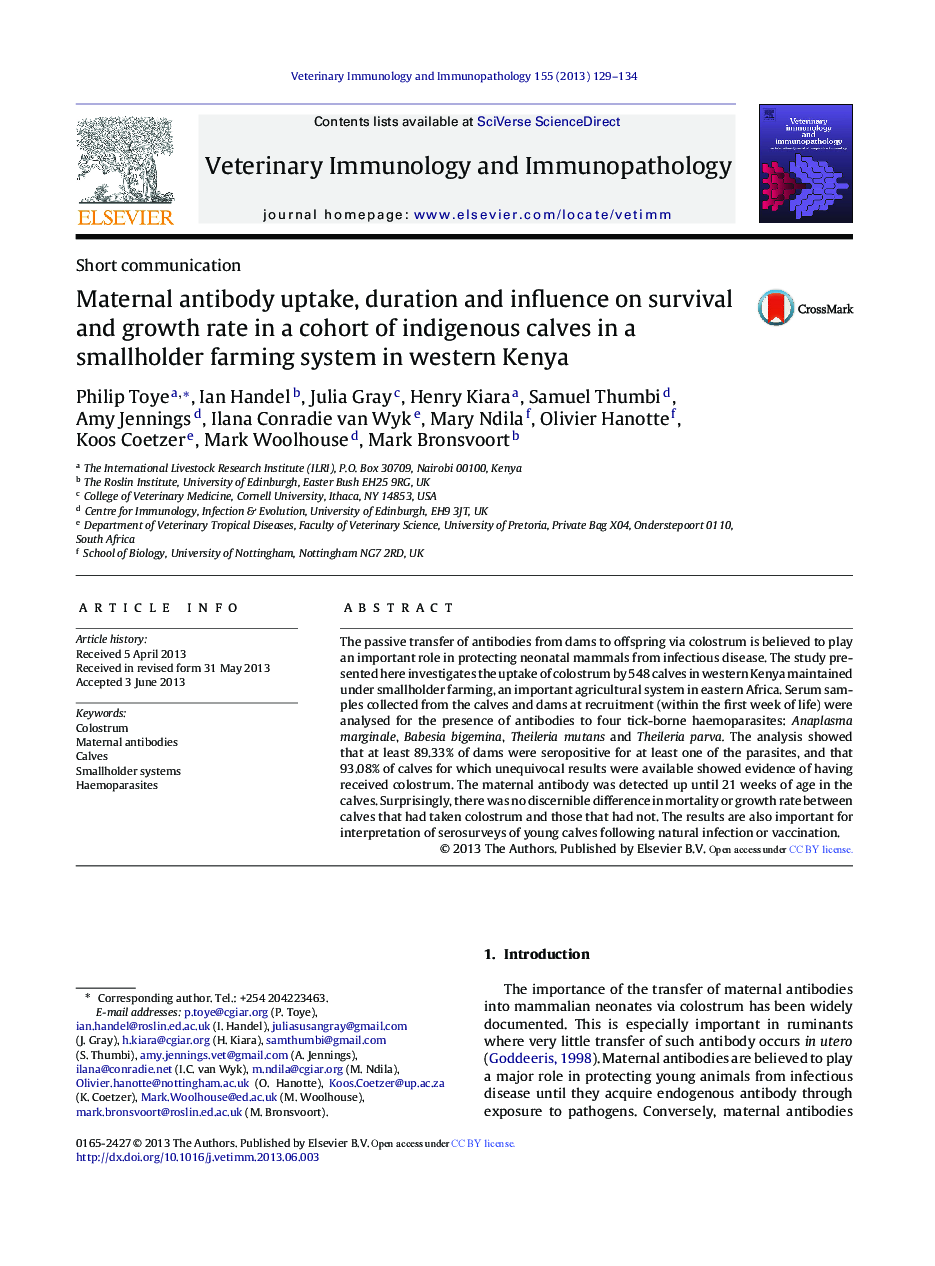| Article ID | Journal | Published Year | Pages | File Type |
|---|---|---|---|---|
| 5796890 | Veterinary Immunology and Immunopathology | 2013 | 6 Pages |
The passive transfer of antibodies from dams to offspring via colostrum is believed to play an important role in protecting neonatal mammals from infectious disease. The study presented here investigates the uptake of colostrum by 548 calves in western Kenya maintained under smallholder farming, an important agricultural system in eastern Africa. Serum samples collected from the calves and dams at recruitment (within the first week of life) were analysed for the presence of antibodies to four tick-borne haemoparasites: Anaplasma marginale, Babesia bigemina, Theileria mutans and Theileria parva. The analysis showed that at least 89.33% of dams were seropositive for at least one of the parasites, and that 93.08% of calves for which unequivocal results were available showed evidence of having received colostrum. The maternal antibody was detected up until 21 weeks of age in the calves. Surprisingly, there was no discernible difference in mortality or growth rate between calves that had taken colostrum and those that had not. The results are also important for interpretation of serosurveys of young calves following natural infection or vaccination.
